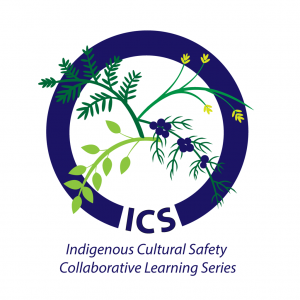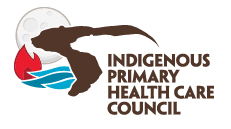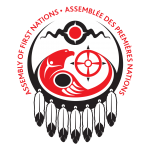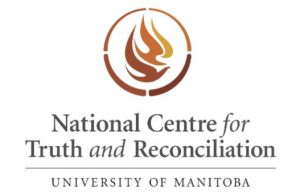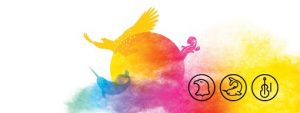Indigenous Health Learning Resources
As part of preparation for a placement in Northern Ontario, we highly encourage all of our Rehabilitation Sciences learners to familiarize themselves with factors impacting the health and well-being of the Indigenous and Francophone populations in Canada. You can also work with your preceptor to incorporate completion of modules into your placement experience. To facilitate this, we have provided a number of high quality learning resources from reputable organizations across Canada. As they occur, you will also be invited to events related to Indigenous and Francophone Health while you are on placement in Northern Ontario.
Specific to Indigenous Health, we ask that learners choose at least one module from each of the two main categories listed below: A) Indigenous Relationship & Cultural Safety B) Indigenous Histories and Contemporary Issues in Canada. A third category is also provided which are links related to Medical Education at NOSM University. You will be asked to report on which modules you completed as part of your end of placement program evaluation.
A) Indigenous Relationship & Cultural Safety
Indigenous Relationship and Cultural Safety Courses from Cancer Care Ontario.
Earn certified credits and enhance your knowledge and cultural competency of First Nations Inuit and Métis people by completing the courses available:
- First Nations, Inuit and Métis Culture, Colonization and the Determinants of Health
- Indigenous History and Political Governance
- Cultural Competence in Healthcare
- Indigenous Health Services and Governments
- Indigenous Knowledge and Traditional Health
- Indigenous Community Health Services
- The Health Landscape of Indigenous People
- Indigenous Cancer Care and Challenges
- Truth and Reconciliation Commission of Canada (TRC) and the United Nations Declaration on the Rights of Indigenous Peoples (UNDRIP)
- Health Literacy
- Chronic Disease Prevention for Indigenous People
- Pediatric Oncology
- Environmental Health
This self-learning program has been certified by the College of Family Physicians of Canada for up to 19.5 Mainpro+ credits.
This national webinar series provides an opportunity to share knowledge, experiences, and perspectives in support of collective efforts to strengthen Indigenous cultural safety across sectors. There are 15 webinars in this series.
Each webinar is approximately 90 minutes.
The purpose of the Ne’iikaaniganaa Toolkit (Anishinaabe word for ‘All our Relations’) is to educate workers at all levels within the health care system and equip them with tools and resources that can effectively move organizations towards addressing implicit bias and discrimination and strengthening equity and inclusion for all Indigenous Peoples. The toolkit also provides tips and strategies for supporting Indigenous communities during COVID.
Approximately 25-30 minutes.
The Assembly of First Nations has developed the “It’s Our Time” First Nations Tool Kit as the basis of a comprehensive strategy to reach out to First Nations students, teachers, schools, communities and the Canadian public at large. The resource is designed to bring together First Nations and non-First Nations people and foster a spirit of cooperation, understanding, and action.
The toolkit includes 22 modules, including:
- Plain Talk 7: First Nations historical timeline and maps
- Plain Talk 8: Cultural Competency
- Plain Talk 16: Health and Community Wellness
Approximately 30-60 minutes per module.
B) Indigenous Histories and Contemporary Issues in Canada
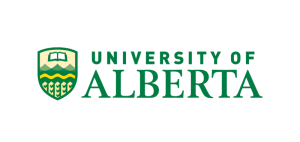
Indigenous Canada is a 12-lesson Massive Open Online Course (MOOC) offered by the University of Alberta that explores Indigenous histories and contemporary issues in Canada. From an Indigenous perspective highlighting national and local Indigenous-settler relations. Topics for the 12 lessons include the fur trade and other exchange relationships, land claims and environmental impacts, legal systems and rights, political conflicts and alliances, Indigenous political activism, and contemporary Indigenous life, art, and its expressions.
Approximately 21 hours to complete.
The National Center for Truth and Reconciliation contains many resources from the Truth and Reconciliation Commission of Canada.
Exhibits – records and materials shared through stories at the at the National Centre for Truth and Reconciliation (NCTR) help foster reconciliation and healing and ensure that the history and legacy of the residential school system are never forgotten. These exhibits contain a wide array of documents and materials that show the construction and operations of the residential schools and the policies that governed them, their legacy and impact on generations of Indigenous Peoples and communities, and some of the steps taken on the path towards healing and reconciliation.
Residential School History – for a period of more than 150 years, First Nations, Inuit and Métis Nation children were taken from their families and communities to attend schools which were often located far from their homes. More than 150,000 children attended Indian Residential Schools. Many never returned.
Truth and Reconciliation Commission Reports – all reports from the TRC are available for free within the public domain, with a section of highlighted reports.
The Unforgotten – is a film that explores the health and well-being of Inuit, Métis and First Nations peoples across five stages of life: birth, childhood, adolescence, adulthood and elderhood. Featuring stories rich in visuals, poetry and music, the film uncovers instances of systemic racism, the impacts of colonialism and the ongoing trauma experienced by Indigenous peoples in the Canadian health care system.
[The film on this website depicts racism experienced by Indigenous peoples.]
Government of Canada Heritage and History resources to help learn about the history of Indigenous Peoples in Canada, including:
- A timeline of key moments in Indigenous History
- Treaty-making in Canada
- Residential Schools
- Indigenous veterans and Indigenous contributions to the War of 1812
Learn more about inspiring Indigenous peoples who have helped shape Canadian history – Indigenous History Makers.
Historica Canada has produced an education guide on the Treaties in Canada. A timeline of treaty making from Pre-Contact to the present day are included.
C) Indigenous Medical Education at NOSM University
Health Sciences Webinar #3 – Anishinaabe Mshkiki, Plant Medicines, to Support Pain Management
Health Sciences Webinar #7 – Anishinaabe Mshkiki, Plant Medicines, to Support Mental Health
Health Sciences Webinar #8 – Community Engagement: Wise Practices




